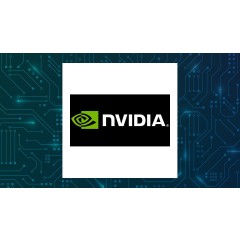AI Industry at Risk: Key Indicator Signals Potential Downturn Ahead

The Rise and Fall of Zuckerberg’s metaverse: A Shift Towards AI
The Decline of a Digital Dream
In the realm of cultural analysis, there are numerous indicators that signal the decline of a trend. From iconic moments like the infamous “shark jump” in “Happy Days” to the moment Facebook became popular among older generations, keen observers can often predict when a fad is fading. Recently, the revelation that Meta’s CEO Mark Zuckerberg is investing heavily in advanced artificial intelligence raises concerns about the future of the metaverse.
A New Direction for Meta
Reflecting on late 2021, as the nation began to reopen after COVID-19 lockdowns, Zuckerberg experienced a significant shift in vision. Captivated by the potential of virtual reality, he committed vast resources to transform this concept into a reality. Just before Halloween that year, he announced a rebranding of his company to Meta, aligning it with his ambitious vision of a metaverse.
The Cost of Ambition
Fast forward to today, and the once-promising metaverse initiative appears to be faltering. Zuckerberg’s investment of approximately $45 billion into this venture has not yielded the expected results, leaving little more than the company’s new name as a remnant of his ambitious plans. As 2024 approaches, Zuckerberg has pivoted his focus to artificial intelligence, a field that gained momentum following the launch of OpenAI’s ChatGPT.
A Shift in Strategy
With his metaverse aspirations behind him, Zuckerberg has made significant cuts to the staff at Meta’s Reality Labs, marking a clear transition from his previous role as the company’s metaverse advocate to a more competitive stance in the AI sector.
The AI Arms Race
Recently, it was revealed that Zuckerberg is establishing a “superintelligence” lab and aggressively recruiting talent from OpenAI, reportedly offering signing bonuses that could reach up to $100 million per individual. This strategy has already seen at least eight OpenAI employees join Meta, potentially costing the company around $800 million just in bonuses for these researchers. This figure does not account for the substantial investments Zuckerberg has already made in AI technology or the projected $65 billion earmarked for future AI infrastructure.
The Challenge of Catching Up
Many organizations, including Meta, have discovered that trying to compete with OpenAI is akin to a novice attempting to outrun a world-class sprinter. The odds are heavily stacked against them, and the outcome is often embarrassing.
Late to the Game
Zuckerberg’s late entry into the AI landscape, combined with his capacity to allocate enormous financial resources, raises questions about the sustainability of this trend. As the tech landscape evolves, one must wonder if the excitement surrounding AI may soon wane.
Conclusion: The Future of AI and Meta
As the industry continues to evolve, the fate of Meta’s AI ambitions remains uncertain. The upcoming Super Bowl ads may serve as a barometer for the current state of AI, echoing past trends in technology and investment.






